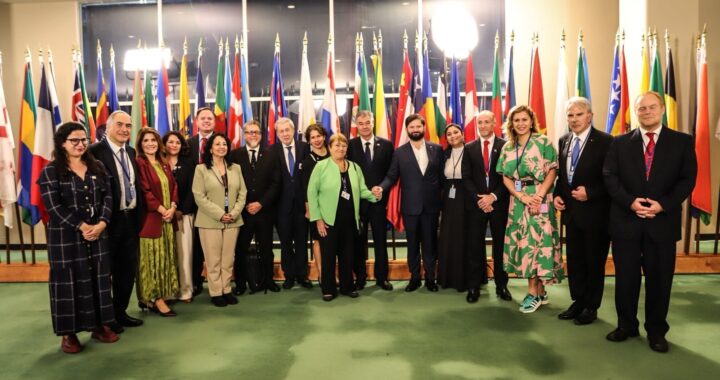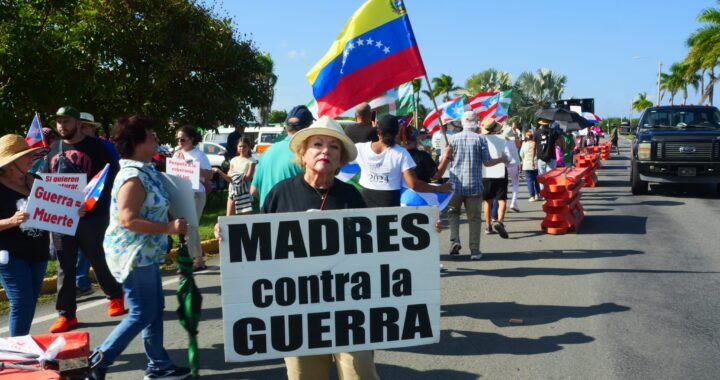Between Beijing and Washington: The Balancing of Field Marshal Asim Munir
4 minutos de lectura
By: Masood Chaudhary
Field Marshal Asim Munir’s recent diplomatic forays to China and the United States have sparked both global attention and national introspection, unfolding not as mere military tours, but as carefully choreographed moves to reposition Pakistan within the architecture of global power. In a world tilting into bipolar tensions, Munir’s visits underscored an emergent doctrine: measured assertiveness anchored in strategic balance.
In Beijing, the welcome extended to Munir bore the unmistakable gravitas of high strategic esteem, full military honors, closed-door dialogues, and red-carpet symbolism. Amid mounting concerns over the safety of Chinese nationals working on Pakistan’s strategic projects, particularly CPEC, the Chinese leadership conveyed its expectations with clarity. Yet, the tone was not one of reproach, but of cautious confidence. Pakistan responded in kind: the protection of Chinese citizens and the continuity of CPEC were reaffirmed not as obligations, but as integral pillars of Pakistan’s sovereign interest.
For Beijing, the signal was clear, Pakistan remains a dependable partner, even amid evolving regional threats. For Islamabad, it was a reaffirmation of a relationship that transcends transactionalism. With precise assurances of enhanced security architecture and intelligence coordination, Munir cast himself not merely as a guarantor of safety, but as a restorer of strategic trust. The diplomacy was quiet, but the message thundered: CPEC is non-negotiable, and Pakistan is its committed steward.
His subsequent visit to Washington unfolded on an entirely different wavelength. Though smaller protests accompanied his arrival, largely partisan and fringe in nature, the wider overseas Pakistani community registered its support for his stabilizing presence. Munir engaged in discreet but substantive conversations with senior U.S. figures from the Pentagon, the State Department, and the intelligence apparatus. The White House’s acknowledgment of his meeting with the President Trump further underscored the visit’s diplomatic weight.
The dialogues in Washington revolved around regional security, counterterrorism continuity, and Afghan border stability. The U.S. views Pakistan, despite complexities, as an indispensable player in South Asia, especially when it comes to managing instability in Afghanistan, navigating its uneasy ties with India, and containing transnational militancy. Munir’s emphasis on sustained operations against TTP networks was received positively. Simultaneously, China acknowledged Pakistan’s countermeasures against BLA & BLF linked outfits, which have repeatedly targeted foreign nationals. These engagements, though understated publicly, served to resuscitate policy dialogues left dormant for years.
What sets Munir apart is the evolution of his military diplomacy. This was no routine parade of uniforms, it was a strategic exercise in recasting Pakistan’s image abroad. His doctrine appears neither East-leaning nor West-dependent; instead, it’s one of equidistant pragmatism, reaching both without being owned by either.
These visits come at a time of sharp IMF-mandated economic corrections and deepening political fault lines at home. Munir’s outreach, while coordinated with the Foreign Office, was led from GHQ, reflecting the military’s deepening role in foreign policy stewardship. The military under his command understands that strategic influence is earned not only on battlefields but in boardrooms and backchannels.
Pakistan’s military is also fully alert to India’s global lobbying efforts, its attempts to diplomatically isolate Pakistan and control South Asia’s narrative. Yet, these maneuvers have not gone unchallenged. Through decades of strategic patience and military preparedness, Pakistan has preserved regional deterrence. This was reaffirmed not just during the 2019 Balakot episode, but more definitively in 2025, during a fresh military standoff born of escalating hostilities.
The 2025 conflict, though managed with diplomatic restraint, culminated in what regional observers widely acknowledged as a strategic success for Pakistan. By containing escalation, maintaining operational superiority, and signaling clear red lines, Pakistan demonstrated both capability and composure. Though no official victory was declared, the message was evident: any misadventure would be met with clarity, strength, and discipline.
Domestically, Munir’s initiatives were met with a spectrum of reactions. Government figures hailed the visits as Pakistan’s reentry onto the global stage; opposition voices criticized the optics of military-led diplomacy. Yet even critics conceded one fact: Pakistan was once again being heard, if not courted, then certainly considered.
Field Marshal Asim Munir, known for his operational precision, has shown equal deftness in navigating the ambiguities of diplomacy. His dual outreach to Beijing and Washington reflects a quiet yet confident recalibration, a shift from reactive posturing to strategic authorship.
His rise to command has brought not only a transition of rank but of doctrine. In Munir’s hands, Pakistan’s military reclaims its role not merely as the custodian of borders, but as a custodian of the country’s global image, projecting stability, commanding respect, and above all, pursuing sovereign agency.
In a world increasingly defined by binary alliances and loud power plays, Pakistan’s survival, and its standing, depends on calibrated diplomacy. Munir’s initiative may not yet yield dramatic shifts, but it signals intent. And in a country too often framed by crisis, the very act of forward movement is a diplomatic statement.
For now, the world may question Pakistan’s internal trajectory, but it can’t ignore the image of a nation asserting its relevance with poise, precision, and purpose. And in that assertion, a new chapter quietly begins.
About The Author: Masood Chaudhary is an investigative journalist and geopolitical analyst with over 20 years of field experiance. With a keen focus on civil-military relations, strategic affairs, and diplomacy, his work has been featured across national and international platforms. Mr. Chaudhary is known for his in-depth reporting, nuanced analysis, and commitment to journalistic integrity in unpacking complex power dynamics in the world. He is National Coordinator & Spokesperson of All Pakistan Journalists Association APJA.




